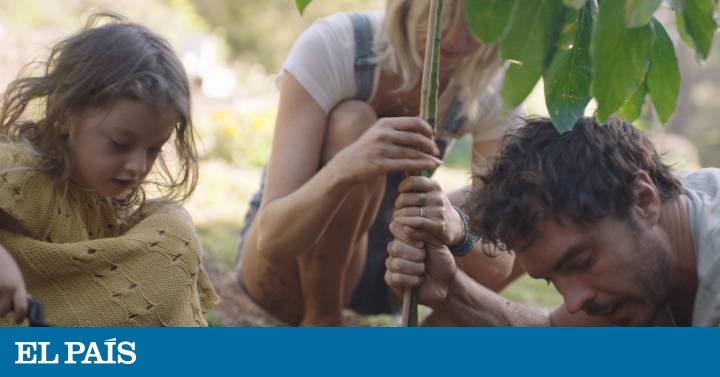MORE INFORMATION
The documentary "alterconsumista" that devastates in France
The documentary that has changed (for the better) thousands of lives
Several times we have spoken in the blog about the transforming power of cinema. Can a film change the result of an election, as Leonardo di Caprio intended? Can a feature film modify the consumption habits of ordinary people, as Demain aspired to do? In any case, the documentary Après Demain presented tangible evidence of the change in at least thousands of people in France thanks to its viewing.
The filmic wave continues to sweep and comes, in this case, direct from Australia. 2040 is a documentary written and directed by Damon Gameau, an Australian director interested in showing his daughter Velvet, just 4 years old, what life on the planet could be like in 2040 if each citizen (and each administration) put a little bit of his part to regenerate the broken. Gameau, who is also the protagonist and narrator of the story, embarks on a global road movie to be able to leave a graphic record of those people and those initiatives that are already betting on change.
The film has raised over $ 800,000 ... to invest in off-grid solar power
On his journey through the wide world he lands in Bangladesh to discover how some small communities, without access to the country's electricity grid, have managed to generate electricity for their use thanks to a networked solar panel system: each home produces its own clean energy And, in the event of overproduction, they can sell the surplus to the next-door neighbor: a more effective, more resilient system that empowers the citizen, that encourages local employment and the local economy.
The documentary also explores other ways of getting around greener, such as electric public transport; other ways of cultivating, such as bio and regenerative, not only in the field but also on the ocean floor. They explain how marine permaculture allows to restore the so damaged marine fauna and flora. In short: the solution is to subscribe to the circular economy and avoid economic growth at all costs, because the cost of an unbridled economy is unaffordable.
So far nothing very novel in content but yes in the staging. 2040 is a futuristic documentary not only because it talks about that possible future but also because it literally films it. Thanks to technology, it allows realistic (and nice) scenes of what the green, clean, community, regenerated world would be like. Somehow that future is already reality in the film.
A final area of the fight against climate change presented by 2040 may be more controversial. According to the documentary, the world's girls would have to be educated if they were to win the battle against global warming. It is proven that women who receive academic training delay the age at which they give birth to their first child and generally have fewer offspring. Fewer people in the world means less pressure on the already so exhausted resources of Earth.
Almost more interesting than the film is the whole device mounted around it through its website, where there is a lot of information about the content and not so much about the film itself. Calls to action (change energy supplier, finance an NGO, divest from dirty energy ...) follow each information tab, not only aimed at viewers, but also at teachers and schools. A whole impact campaign financed entirely by donors. It is clear that 2040 exists with the almost sole purpose of turning the audience in the room into a citizen on foot (and not seated), into an empowered, active citizen and agent of change.
At the end of last year, the documentary's Facebook page posted a video announcing that the film had been seen by hundreds of thousands of people around the world since its release in mid-2019. But the success of the public is not the most interesting, despite being a movie. The best comes after the pass: the video informs us that more than $ 800,000 has been raised to invest in off-grid solar energy, powered by Redgrid; more than $ 600,000 to create the first ocean regenerative marine farm in Australia and more than $ 14,000 to finance the education of girls and women in the world.
Success is not measured only in dollars: hundreds of people have signed up to volunteer to help organizations like the Climate Foundation, creators of marine permaculture; 350 Australian farmers have decided to sign to join the "agricultural transition"; the teaching material offered on the web had been downloaded 14,500 times, which means an impact on more than 600,000 Australian students. Does anyone still doubt that cinema can change the world and that it is in fact changing it? Long live green filmmakers!






